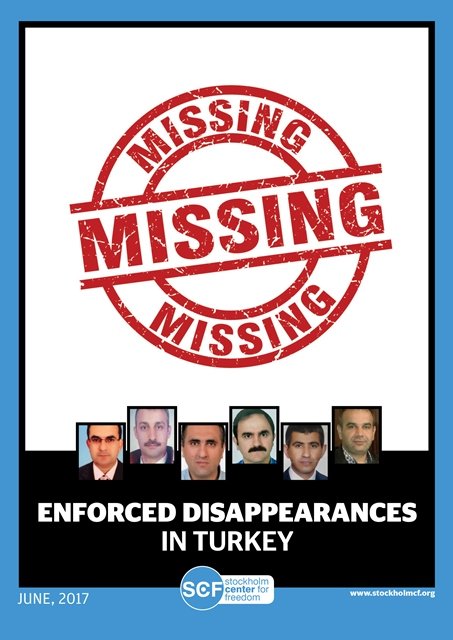– Critics whisked away from streets in Turkey, detained in secret locations, faced torture
A new study has revealed that Turkish government has resumed illegal abductions and enforced disappearances that were believed to be a thing of the past, primarily confined to the dark period of the 1990s, when mainly Kurds were victimized.
The brutal regime of Turkey’s autocratic President Recep Tayyip Erdoğan has now engaged in depriving many victims of their liberty without acknowledging their unofficial detention. This time the prime target is the vulnerable social group Gülen movement against which the Turkish government launched an unprecedented witch-hunt persecution since December 2013.
The Stockholm Center for Freedom (SCF) has so far documented 12 individual cases of disappearance since 2016 that show a systematic and deliberate campaign of kidnappings by elements within the Turkish security and intelligence services as part of intimidation campaign to silence critical and independent voices and kill the right to dissent.
“In addition to mass torture and ill-treatment of tens of thousands of victims in detentions and prisons, now we started to see enforced disappearances in Turley , sometimes on broad daylight, by security elements linked to the government,” Abdullah Bozkurt, the president of the SCF, has said.
“Families and loved ones have spent so much time searching for truth and justice but Turkish authorities show indifference to their plight,” he added.
In one case in which an abductee was finally located 42 days after he had gone missing, his lawyers revealed that he was kidnapped by men who said they were police officers, was tortured for days and forced to sign a confession before he was eventually handed over to the police for official custody.
The motivations behind these abductions and disappearances appear to be twofold. On the one hand the Turkish government keeps up its campaign of intimidation by amplifying fear in the society. That frightens critics and opponents from adopting a critical position against Erdoğan and his associates in the government.
The second motivation on the part of the government is to elicit forced, fabricated and self-incriminating confessions, often written by the police in advance, so that it will help the government case in criminalizing opposition groups, primarily the Gülen movement participants, and facilitate the mass persecution of dissidents.
Turkey survived a controversial coup attempt on July 15, 2016 that killed over 240 people. Immediately after the putsch, the Justice and Development Party (AKP) government along with President Erdoğan pinned the blame on the Gülen movement.
Fethullah Gülen, who inspired the movement, strongly denied having any role in the failed coup and called for an international investigation into it, but President Erdoğan — calling the coup attempt “a gift from God” — and the government initiated a widespread purge aimed at cleansing sympathizers of the movement from within state institutions, dehumanizing its popular figures and putting participants of the Gülen movement in jails.
At least 161,751 people were detained or investigated and 50,334 people were arrested in Turkey in the framework of the Turkish government’s massive post-coup witch hunt campaign targeting alleged members of the Gülen movement since the controversial coup attempt on July 15, 2016, according to statistics reported by state-run Anadolu news agency by basing on information taken from the officials from Turkey’s Justice Minsitry on June 13.


